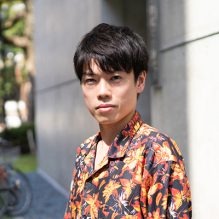This website uses cookies to improve the user experience. If you continue on this website, you will provide your consent to our use of cookies.

Assistant Professor, Graduate School of Education, Kyoto University*Profile is at the time of the award.
2023Inamori Research GrantsHumanities & Sociology
The Japanese educational research has long been centered around schools, and private tutoring has often been overlooked, despite its considerable influence. In contrast, the English-speaking world has accumulated a substantial body of research on private tutoring, yet the tendency towards Western-centric perspectives has resulted in a neglect of the distinct histories and cultures of various countries and regions, leading to theoretical constraints. This research project aims to broaden the horizons of the educational research, both domestically and internationally, by examining the historical development of Japanese private tutoring industry.
Humanities & Sociology
